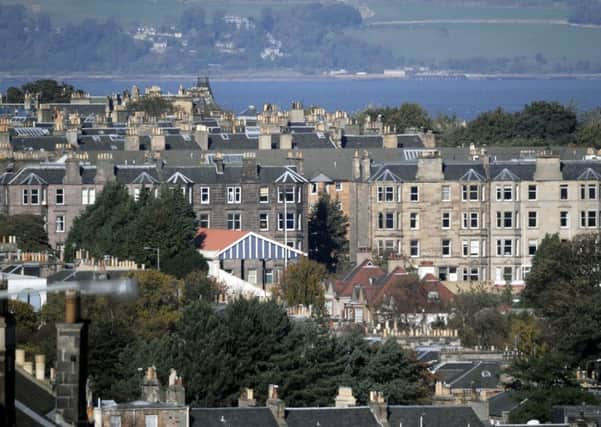Ian Swanson: It tax all sorts to get to grips with reform plans


SUDDENLY everyone wants to talk about tax. For years it was almost a no-go area – the “tartan tax” was never used and the council tax was frozen and forgotten.
But now taxes of all sorts are the topic on everyone’s lips.
Advertisement
Hide AdAdvertisement
Hide AdTax has been billed as the defining issue for the coming Holyrood election – and both the SNP and Labour chose yesterday to set out some of their plans.
For all its radical talk, the SNP is being surprisingly cautious, though taking care to make sure it uses at least some of the new powers the Scottish Parliament has been given.
Nicola Sturgeon is pledging no increase in the basic 20p rate of income tax for the life of the next parliament and has ruled out a rise in the higher 40p and top 45p rates for the first year.
But she does plan to increase the threshold for paying the 40p tax only by inflation rather than from £43,000 to £45,000 as George Osborne is doing south of the Border. That means no-one’s tax bill will actually increase, but some will pay more tax than those with a similar income down south.
Advertisement
Hide AdAdvertisement
Hide AdAnd Ms Sturgeon proposes a new “zero rate” band by 2020-21 to stop people having to pay income tax until they earn £12,750 – £250 higher than the expected threshold in the rest of the UK by that time.
Meanwhile, Labour – which has already proposed a 1p income tax rise and will also restore the top rate to 50p for people on incomes over £150,000 – unveiled its replacement for the council tax.
Instead of tweaking the bands, as the SNP plans, Labour wants a new property tax based on individual house values rather than price bands. There would be a £3000 limit on tax bills and a three per cent cap on increases.
But it would also mean a revaluation exercise – a bold move, but probably a necessary one. If the system of local taxation is to make any sense it cannot forever rely on valuations at 1991 prices.
Advertisement
Hide AdAdvertisement
Hide AdGoing further, Labour also proposes allowing councils to levy a tourist tax and a tax on vacant land – both of which could be significant measures in Edinburgh, opening up a new stream of revenue for the city.
It could be argued that Labour can afford to be bold and radical in its tax proposals because the party knows it is not going to be the government, while the SNP has to deal with harsh realities.
SNP insiders insist, for instance, that the decision not to increase the top tax rate is “purely pragmatic” – based not on any sympathy for high earners, just a rational calculation of the risk involved. Only seven per cent of these top-rate taxpayers would need to switch their main residence to an address in England for the Scottish Government to start losing revenue, says one insider.
And anyway, the rejection of the Tories’ higher threshold for those hit by the 40p tax will bring in more money, they add.
Advertisement
Hide AdAdvertisement
Hide AdNevertheless, the SNP’s tax package does not quite match the party’s radical rhetoric – and people have noticed.
The STUC says refusing to pass on the Chancellor’s tax cut for higher rate payers is the least it expected. It argues the Scottish Government has not only the capacity to design a fairer system in which the burden is shared fairly, but also the political capital to introduce bold measures.
And the STUC concludes: “If the Scottish Government can’t summon the courage to propose major progressive change at this moment in time, we have to ask if it ever will.”